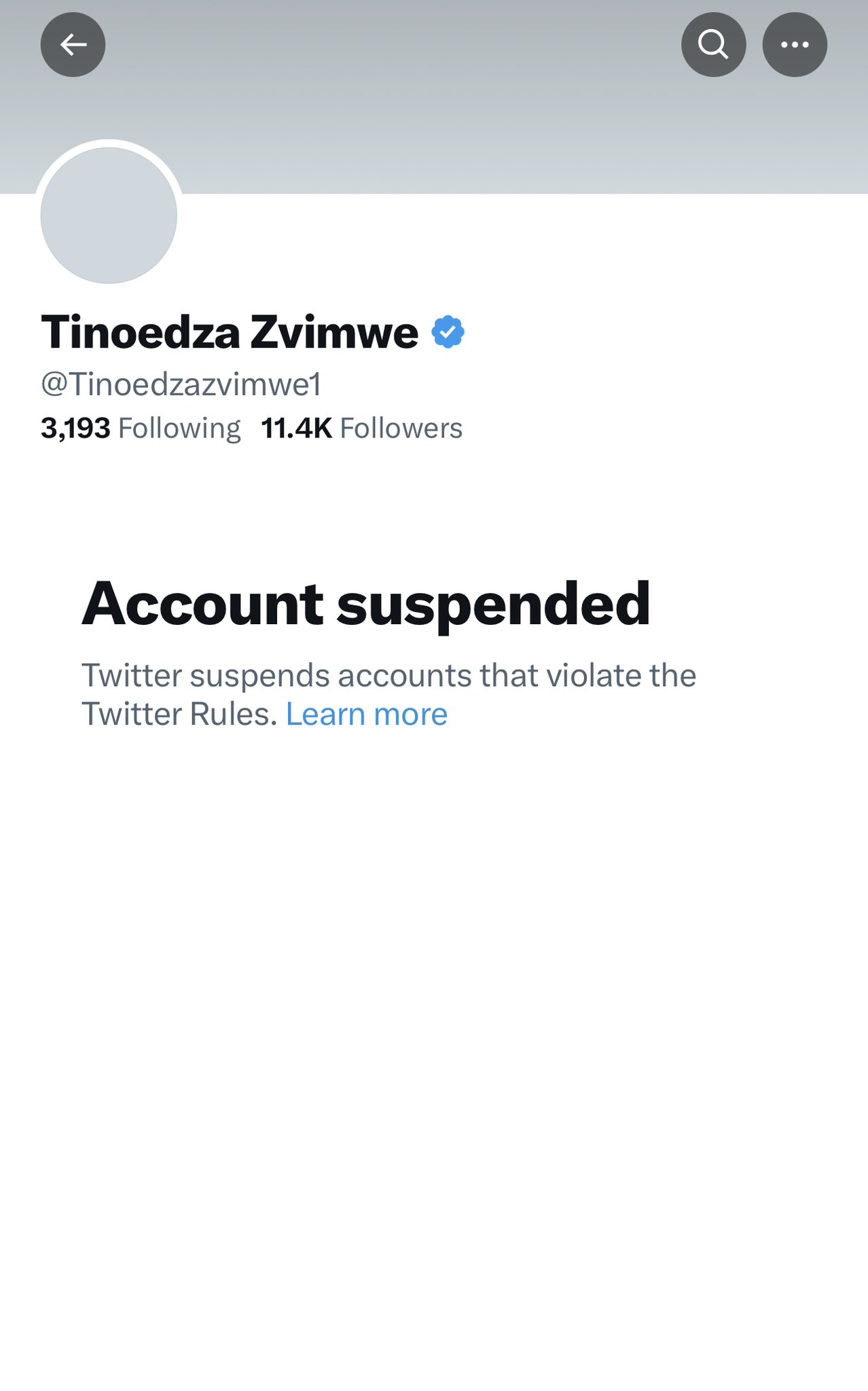Twitter Suspended Mnangagwa's Spokesman For Threatening SADC Election Observer Mission Head

Twitter has suspended President Emmerson Mnangagwa’s spokesman, George Charamba, for the second time, alleging that he issued threats against the head of the SADC election observer mission.
Charamba expressed his anger on Twitter after the observers criticised the recent polls for not meeting regional and international standards of democratic elections. Charamba seemed to threaten Nevers Mumba, former Zambian vice president and head of the observer mission, asserting that Mumba was a sellout who would have been killed during the liberation war.
Twitter users reported Charamba’s account (@tinoedzazwimwe1), following the threats towards Nevers Mumba. Twitter stated that Charamba broke their hateful conduct rule based on multiple reports. The platform banned Charamba from creating new accounts. Said the statement issued in response to a report by an unidentified user:
We suspended @tinoedzazwimwe1’s account for breaking our hateful conduct rule. We found they broke our hateful conduct rule through different reports we received about their behaviour.
This is not the first time Charamba has faced repercussions on Twitter for engaging in bullying or exhibiting hateful language. Previously, he was banned under the username @jamwanda2 for cyberbullying and making sexist remarks towards a South African TV journalist. Charamba circumvented the ban by creating a new account as @tinoedzazwimwe1.
Charamba’s utterances towards Mumba came after the SADC Electoral Observation Mission (SEOM), AU-COMESA, and the Electoral Commissions Forum of SADC (ECF-SADC) Observer Missions issued a joint statement noting that Zimbabwe’s 2023 harmonised elections did not fully meet the requirements outlined in the country’s constitution.
The statement highlighted various concerns, including flaws in the delimitation process, delayed release of the Voters’ Roll by the Zimbabwe Electoral Commission (ZEC), restrictive fees for accessing the Voters’ Roll, disruption of opposition rallies, the unconstitutionality of the Patriotic Bill, disqualification of a presidential aspirant, high nomination fees, inadequate progress in achieving gender parity, concerns about the independence of the Judiciary, allegations of voter intimidation, controversies surrounding postal voting, and bias of state-owned media favouring the ruling party.
The British Embassy in Harare concurred, stating that the identified issues, coupled with the lack of transparency by the Zimbabwe Electoral Commission (ZEC), were adversely affecting the peaceful conduct of the election.






